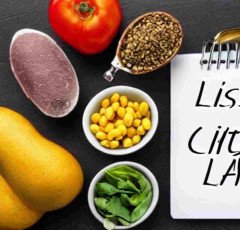
how to manage a gluten allergy?

A stringent gluten-free diet and way of life must be followed in order to manage a gluten allergy, commonly known as celiac disease.
An overview of how to handle a gluten sensitivity is provided below:
When dining out, exercise caution. Tell the service about your gluten sensitivity and inquire about gluten-free options. Avoid using communal frying pans or cooking utensils that can have gluten residue.
Be on the lookout for hidden sources of gluten because it can occasionally be found in unanticipated items like some sauces, dressings, and even some medications. To check that the prescription medications are gluten-free, see a pharmacist.
Be careful with personal care items
Follow a healthcare professional's advice when keeping a regular eye on your health and symptoms.
Always seek the counsel and direction of a qualified healthcare provider or trained dietitian while treating a gluten allergy. Maintaining excellent health and avoiding long-term celiac disease consequences need adherence to a gluten-free diet.
Traveling can be challenging for people with gluten allergies, so exercise caution. In order to express your dietary requirements, do your research on nearby eateries and food options, prepare gluten-free snacks for the trip, and carry translation cards for gluten-free foods in various languages.
Cooking at home provides you more control over the ingredients and lowers the possibility of cross-contamination. You may find several cookbooks and recipes that are gluten-free to get you started on your culinary journey.
Addressing unintentional gluten exposure
Accidental gluten exposure can happen despite your best efforts. You should be ready for probable symptoms and pain if you accidentally consume gluten. Keep yourself hydrated and give your body time to rest.
Regular follow-ups with medical professionals Make appointments with your healthcare practitioner on a regular basis to monitor your general health and identify any potential celiac disease issues.
Being patient and optimistic is crucial when adjusting to a gluten-free lifestyle, which can be difficult. Put your attention on the mouthwatering gluten-free foods you can consume and the advantages of efficiently managing your health.
Self-advocacy
Don't be afraid to speak up for your dietary preferences when out to eat or at social gatherings. To guarantee your safety, explain to servers or hosts that you are allergic to gluten and ask them questions.
A lifelong commitment, managing a gluten sensitivity can result in better health and wellbeing if done diligently and carefully. Always collaborate closely with medical professionals to create a plan that suits your unique requirements and way of life.
Engage your network of supporters
Your friends, family, and coworkers can better understand your needs and provide support if you let them know about your gluten sensitivity. It can be simpler to navigate social situations and deal with the difficulties of a gluten-free lifestyle if you have a solid support system.
Managing a gluten allergy can provide emotional difficulties, particularly when dealing with social expectations or emotions of being out of the ordinary. To exchange experiences and manage the emotional aspects of living with celiac disease, take into consideration going to counseling or joining support groups.
Be ready for emergencies
Access to wholesome gluten-free meals may be difficult when traveling or during natural disasters. Create an emergency supply pack with non-perishable gluten-free goods to make sure you have safe options in case of unforeseen circumstances.
The effects of celiac disease vary from person to person, so what works for one person may not be effective for another. As you learn to live a gluten-free lifestyle, be kind to yourself and make the necessary adjustments to find what works best for you. A registered dietician or other healthcare provider with expertise in celiac disease can offer you individualized advice and support as you embark on your gluten-free journey.
Make your house a safe place to live by removing any gluten-containing items and teaching family members about the significance of preventing cross-contamination.
Keep in regular contact with your medical team and let them know about your gluten-free diet and any changes to your health. They can keep an eye on your development, provide guidance, and deal with any potential difficulties.
Carry gluten-free snacks with you while you're traveling or on the run to ensure you always have secure options at the ready for when hunger strikes.
Learn to maneuver in social situations, As you speak assertively about your dietary requirements with friends, family, or coworkers in a variety of social situations, without feeling self-conscious, practice social situations.
The presence of gluten in some alcoholic beverages should be noted. This is especially true of several beers and spirits. Choose distilled spirits created from gluten-free ingredients or gluten-free beer or wine as your alcoholic beverage of choice.
Do not be afraid to inquire, When unsure whether a product or ingredient is gluten-free, ask the manufacturer or a registered nutritionist for clarification.
Being gluten-free may cause some ups and downs, so be kind to yourself and others. Recognize your humanness and the possibility of blunders. If you accidentally eat gluten, concentrate on taking what you learned from the situation and moving on.
Participate in gluten-free communities, Use social media groups, forums, or local support groups to get in touch with people who have the same dietary limitations as you. It can be helpful to share stories and advice as you navigate the gluten-free world. Concentrate on eating a healthy, balanced diet rather than one that contains gluten. To achieve your nutritional demands, make sure you're including a range of fruits, vegetables, proteins, and healthy fats.
Find gluten-free resources, There are a ton of blogs, websites, and cookbooks devoted to a gluten-free lifestyle. These can offer insights on managing gluten sensitivity, culinary suggestions, and lifestyle advice.
A gluten allergy requires commitment to manage, but if you establish habits and techniques that work for you, it will eventually get easier. A successful gluten-free journey will be aided by a positive outlook and a willingness to learn and adapt. Always seek tailored counsel and advice from licensed dietitians or medical specialists to maintain your health while managing celiac disease.























































































 Creative Brief For Video Shoot
Creative Brief For Video Shoot  Only For The United States
Only For The United States  The Click Engine
The Click Engine  Acer Laptop
Acer Laptop  Best Sellers On Amazon
Best Sellers On Amazon  NordLocker
NordLocker  Unreal Engine 5 For Beginners Learn The Basics Of Virtual Production
Unreal Engine 5 For Beginners Learn The Basics Of Virtual Production  ASPINAL LONDON
ASPINAL LONDON  Favorite Company (Cuelinks)
Favorite Company (Cuelinks)  Unlimited access to classes on illustration, photography, design, film, music
Unlimited access to classes on illustration, photography, design, film, music  NordVPN
NordVPN  Top Rated From Amazon
Top Rated From Amazon  1150+Trendy kids coloring pages Bundle
1150+Trendy kids coloring pages Bundle  One World Collection
One World Collection  Online Marketing
Online Marketing  Best Robotic Vacuum Cleaners
Best Robotic Vacuum Cleaners  Amazon Best Selling Products
Amazon Best Selling Products  ASUS Laptop
ASUS Laptop  SEO Checklist
SEO Checklist  Women Fashion
Women Fashion  BEST SELLER TOP10
BEST SELLER TOP10  SOFAS
SOFAS  Sennheiser
Sennheiser  Smart Doorbell
Smart Doorbell  Online Technology Classes
Online Technology Classes  Best Selling Books
Best Selling Books  Artificial Intelligence
Artificial Intelligence  NordPass
NordPass  Graphics & Design
Graphics & Design  Best Home Appliances
Best Home Appliances  Hello Theme
Hello Theme  TitTok Revolution
TitTok Revolution  All Wireless Products
All Wireless Products  Hot Bags For Pain Relief
Hot Bags For Pain Relief  ELECTRONIC ACCESSORIES
ELECTRONIC ACCESSORIES  Men Clothing
Men Clothing  RPM 3.0
RPM 3.0  The Secret Email System
The Secret Email System 
















